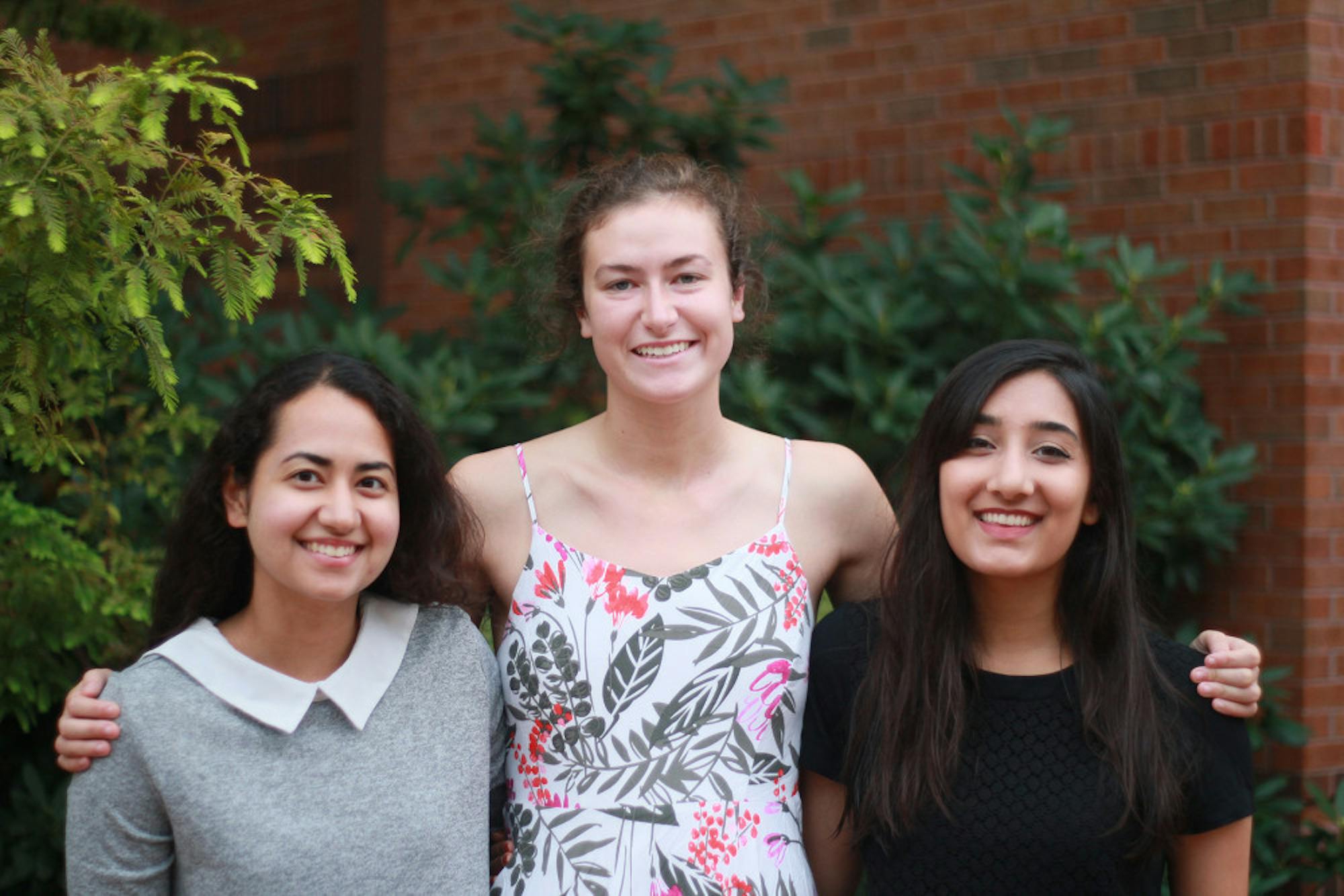Tufts Union Debate, a newly-founded group modeled after the Oxford Union, will host seven public debates on issues related to Tufts, the nation and the world this semester. The first debate will take place on Sept. 19 in Braker Hall Room 001.
By providing a forum for regular debates between students, faculty and outside experts, the Tufts Union intends to challenge students' opinions and encourage them to consider alternative points of view, according to co-founder Manal Cheema, who serves as co-president of the group along with seniors Nimarta Narang, Christopher Dowd and Elizabeth Ahrens.
Cheema, a senior, explained that each debate will tackle a particular motion.
The motions for the first three debates are "This Campus Believes that the U.S. Should Support a Two-State Solution," “This Campus Commends Tufts’ Use of Our Tuition” and “This Campus Believes that the American Dream is Dead.” She said that the topics for each debate are deliberately varied in scope.
During the debates, two pre-selected speakers will argue in favor of the motion and two will argue against, with eight minutes allotted for each speaker to deliver a prepared remark. While the main feature of each debate will be the four prepared speeches, each debate night will also feature audience participation in the form of brief floor speeches, Cheema explained.
Narang also noted that the Union plans to host "emergency debates" later in the semester, during which audience members will be able to present one-minute speeches sharing their views on current issues on campus.
Cheema noted that one of the largest gauges of the Tufts Union’s impact on its audience will be through voting on the motion both before and after the debate. While involved with the Oxford Union during her time abroad, she said she observed how a night of debate would frequently cause many attendees to change their minds about the motion.
She added that the intention of the debates is not necessarily to make people change their minds, but rather to cause them to think analytically and academically about an issue. Some attendees might leave the debate holding the same opinion as before but armed with stronger arguments to defend it, Cheema said.
Narang noted that although the organization's founders have received a large number of nominations for speakers, they are still in the process of selecting speakers for each debate. She said they intend to include a mixture of students and professionals, with the goal of inviting a wide range of people.
“We’re hoping to invite speakers with different viewpoints,” Narang said. “It’s more about bringing different people in [and] making sure that all different points are addressed.”
Cheema said that the group is looking into recognition by Tufts Community Union (TCU) Senate in the future. While all of the organizers recognize the Oxford Union as a successful template, Narang said that the Tufts-focused topics are integral to Tufts Union Debate.
“We hope that we will be able to form the Union into something that’s unique,” Narang said.
Cheema and Narang said that the Tufts Union is recruiting committee members to invite speakers and to help facilitate the debates. According to Dowd, the Tufts Union itself will be neutral and apolitical, with an agenda purely focused on facilitating spirited discussion.
"First and foremost, the Tufts Union is a platform," Dowd said. "The only thing we advocate for is informed debate between dedicated members of our community in an effort to help raise discourse."
AnApril 2016 survey of Tufts students conducted by the Tufts Daily and Enigma found that 72 percent of Tufts students aligned with the Democratic Party, whereas only seven percent supported the Republican Party, demonstrating that Tufts is somewhat politically homogeneous. Cheema argued that this homogeneity would not inhibit a balanced debate, citing that the Oxford Union hosted spirited debates even though their student body was also disproportionately progressive.
To that end, Cheema said, the Tufts Union intends to invite speakers who will introduce the attendees to alternative viewpoints without being polarizing. Cheema said that they are aware that certain political disagreements can have an inherent power imbalance, but nonetheless, their focus is on encouraging serious debate, even if everybody does not agree.
“The last thing I want is for speakers not to be able to put forth arguments that are academically based for the fear that they’re not aligned with popular opinion at Tufts,” Cheema said.
Cheema argued that the practice of discussing important issues in a civil and analytical matter is currently lacking at Tufts.
"So often, the debate and issues get lost in personal attacks," she said. "[The organization's goal is to] foster a kind of community that causes people to reconsider their opinions in light of new information, or give them the arguments to defend the position they’ve already adopted.”
Dowd agreed, noting that college campuses are a forum where ideas and opinions should be challenged.
"If we do not allow ourselves to be open to that sometimes uncomfortable process, we are doing ourselves and our community a disservice," Dowd said.
Seniors form Tufts Union Debate, spinoff of Oxford's debate forum






